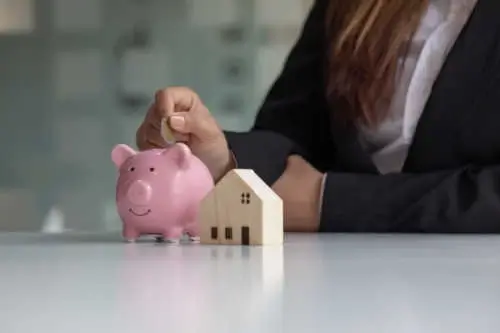
Since buying a home is one of the biggest financial investments most people ever make, if you're are not careful, you can get in over your head. This can result in a status of being “house poor,” or spending way more on housing costs than you can afford.
What Does Being House Poor Look Like?
- Regularly worrying whether you can make your monthly mortgage payment
- Not having an emergency fund to cover unexpected housing costs
- Not having enough money left after housing expenses to contribute to an emergency fund or other savings goals
- Delaying putting money towards retirement in order to pay for housing needs.
- Feeling like you’re just scraping because of your house expenses.
How to Avoid Becoming House Poor
That all sounds pretty miserable, right? If you are starting your home search, you can generally avoid all those unfortunate circumstances by taking a few important steps:
- Keep Your Debt-to-Income (DTI) Ratio Low
Mortgage lenders recommend keeping your housing costs to no more than 30% of your total monthly income. For example, if you make $7,000 a month, your housing expenses should be less than $2,100. And that doesn’t just mean your mortgage principal and interest. That amount should include your property taxes, any mortgage insurance, HOA fees, utility bills, and regularly home maintenance. If you have other monthly debt, like student loans or credit cards or car loans, you should factor those into your budget as well. - Take Out a Loan You Can Afford, Not That You Qualify For
Even though having a lower DTI is better, lenders may qualify you based on a higher ratio than you might feel comfortable with. Avoid the temptation to buy a house at the very top of your loan limit; that is a sure way to start feeling house poor fast. - Plan for Emergencies
First-time home buyers often underestimate the true cost of homeownership. Things like appliances, HVAC systems, roofs, and yards need to be maintained. And things break, more often than you’d expect, that need to be replaced or repaired. It all costs money and can eat into your budget quickly. The best way to prevent feeling house poor in this situation is to have a home emergency fund saved up to handle these expenses, and to continually replenish it as you make withdrawals.
How to Stop Being House Poor
What about if you are already feeling house poor? What can you do to come back from the financial brink?
- Refinance
If your current mortgage has a higher interest rate than the market rate, refinancing might lower your payment and make it more affordable. - Get Rid of PMI
If you’ve had your loan long enough that you have 80% equity in your house, contact your mortgage company to cancel the private mortgage insurance policy. That will save you somewhere between 0.5% -2% of your loan amount total every year. - Consolidate Debt
If you are carrying lots of other debt as well, consolidating it all into one loan with a low interest rate could decrease your costs. - Increase Your Income
Applying for a higher paying job or getting a second job at least temporarily might help you dig out of the house poor hole. - Downsize
You could always consider selling your current home and buying a smaller one until your income and finances are ready to handle higher housing costs.
Being house poor is not a great feeling, but you can avoid it or get out of it with a few smart steps.
Give us a call today, if you'd like to see what options are out there to help reduce any financial pressure that you're feeling at the moment.
These materials are not from HUD or FHA and were not approved by HUD or a government agency.

